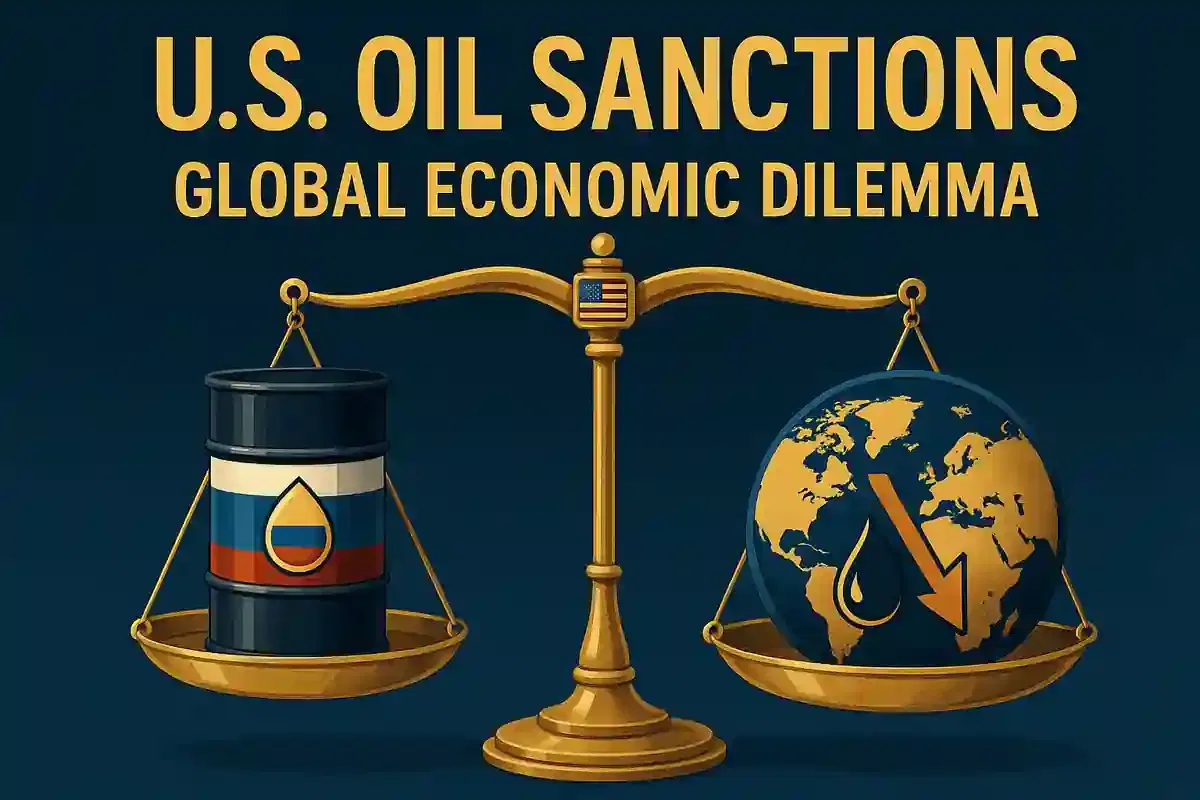US Oil Sanctions on Russia: Global Economic Dilemma and Potential Impact
Commodities
|
29th October 2025, 4:06 AM

▶
Short Description :
Detailed Coverage :
The Trump administration's oil sanctions on Russia's top producers, Rosneft and Lukoil, have created a complex situation for Western nations. The core challenge is to restrict Russia's oil revenues without causing significant economic damage globally, such as triggering a supply shock and increasing oil prices. The U.S. possesses further options, including blacklisting Russia's "shadow fleet" of oil tankers and employing secondary sanctions on entities in countries like China or India involved in Russian oil trade. However, imposing these measures could lead to price volatility, especially given existing economic uncertainties from trade policies and approaching elections.
Russia has been adept at evading sanctions through mechanisms like its shadow fleet, intermediary traders, and non-dollar financial channels, with only a small percentage of its oil exports still settled in U.S. dollars. Companies like Lukoil have announced plans to sell international assets due to these sanctions.
The enforcement power of the U.S. Treasury Department is considered stronger than that of the European Union, which relies more on individual member states. While the EU and UK have targeted numerous vessels in Russia's shadow fleet, the U.S. has deployed fewer. The effectiveness of the oil price cap mechanism is also questionable, as the U.S. has largely disengaged from it.
These sanctions could lead buyers in China and India to demand deeper discounts. The reliance on shadow tankers and intermediaries increases shipping costs for Russian exporters, potentially impacting Russia's already declining energy revenues and contributing to its budget deficit. Analysts express uncertainty about the true intent of some sanctions to inflict damage versus signaling.
Impact Rating: 7/10 This news has a significant impact on the Indian stock market, primarily through its influence on global oil prices. Fluctuations in crude oil prices directly affect India's import bill, inflation rates, and the profitability of companies in sectors like aviation, logistics, and petrochemicals. Furthermore, potential secondary sanctions on Indian entities could disrupt trade relationships.
Difficult Terms Heading: Difficult Terms * **Sanctions**: Penalties or restrictions imposed by one country on another for political reasons, often involving trade or financial measures. * **War chest**: A large sum of money accumulated for a specific purpose, in this context, Russia's financial resources to fund military operations. * **Shadow fleet**: A group of oil tankers operating outside international regulations, often used to circumvent sanctions or avoid scrutiny. * **Secondary sanctions**: Sanctions imposed on entities or individuals in third countries that do business with sanctioned parties. * **Supply shock**: A sudden and unexpected disruption in the supply of a commodity, leading to sharp price increases. * **Inflation trends**: The general direction and rate at which prices for goods and services are rising in an economy. * **Tariff policies**: Taxes imposed on imported goods, which can affect international trade and domestic prices. * **Non-dollar financial channels**: Payment systems and financial transactions that do not use the US dollar as the primary currency. * **Oil price cap**: A policy aimed at limiting the price at which Russian oil can be sold on the international market. * **Commodities trading**: The buying and selling of raw materials like oil, metals, and agricultural products. * **Freight**: The cost of transporting goods, especially by sea. * **Budget deficit**: A situation where a government spends more money than it collects in revenue.